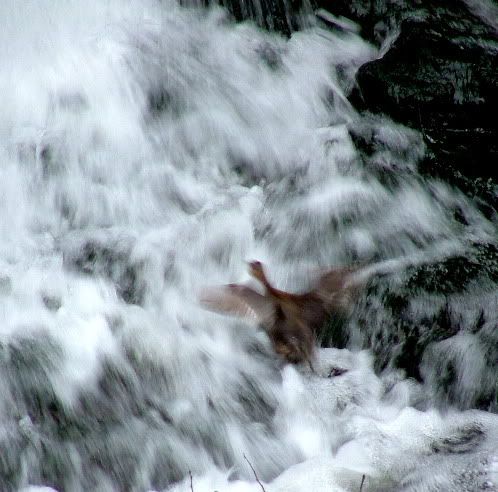

Video 1 - Dabchick versus Waterfall
Video 2 - Dabchick versus Waterfall
Video 3 - Dabchick versus Waterfall
He never quite made it.


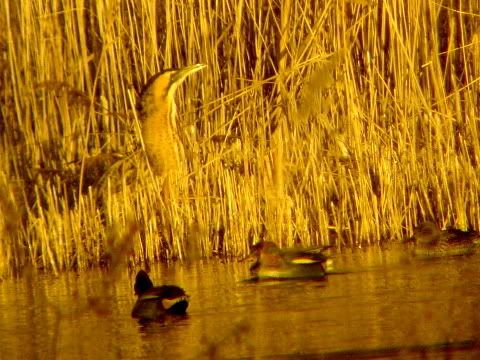
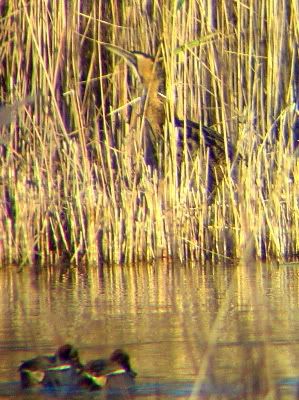 Their famed talent for transformation is well founded, and we watched these birds seamlessly move from streaky egg-shape to towering serpent. It's quite remarkable, and quite typical of this highly charismatic species.
Their famed talent for transformation is well founded, and we watched these birds seamlessly move from streaky egg-shape to towering serpent. It's quite remarkable, and quite typical of this highly charismatic species.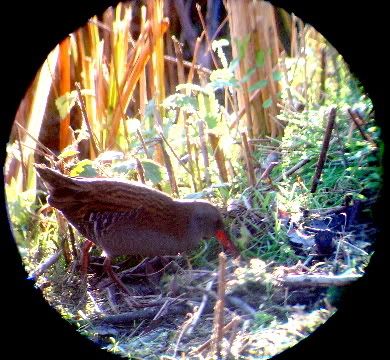 That other elusive bird of the reedbed Water Rail was similarly accommodating, indeed more so. I'd never previously heard of them coming to feeders, never mind seen it, but now I'm a believer. As the tits and finches scattered seed down onto the grass below, the Water Rail skulked and crept from the reeds, out into plain view to peck up the remnants, no more than ten yards from the hide.
That other elusive bird of the reedbed Water Rail was similarly accommodating, indeed more so. I'd never previously heard of them coming to feeders, never mind seen it, but now I'm a believer. As the tits and finches scattered seed down onto the grass below, the Water Rail skulked and crept from the reeds, out into plain view to peck up the remnants, no more than ten yards from the hide.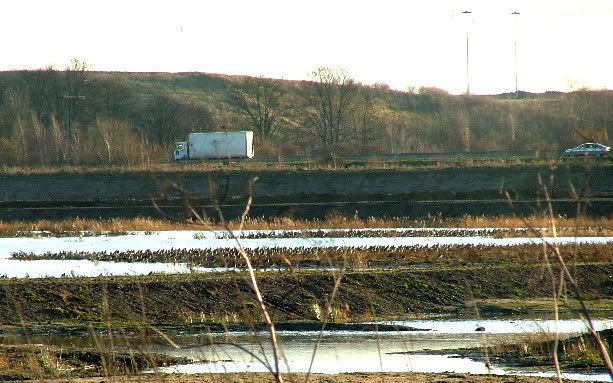 On the far side of the reserve beneath the main road into Doncaster, 2,000-3,000 Golden Plover roosted in the afternoon with smaller numbers of Lapwing.
On the far side of the reserve beneath the main road into Doncaster, 2,000-3,000 Golden Plover roosted in the afternoon with smaller numbers of Lapwing.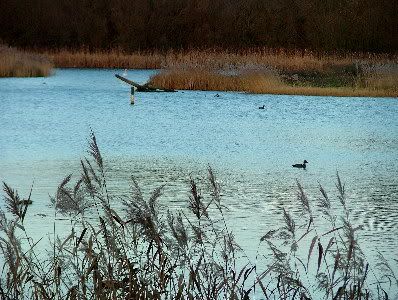
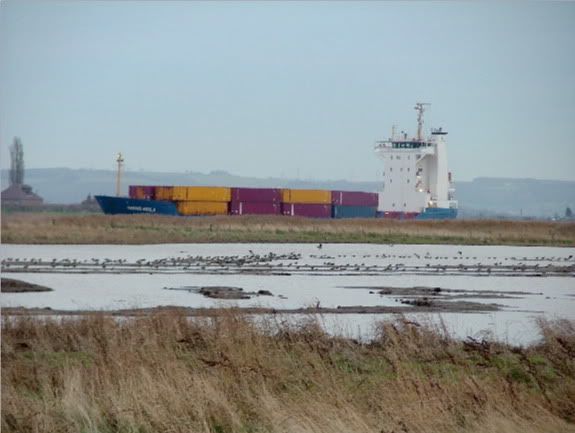 We're very near the inland port of Goole at Blacktoft, so pacing container ships are common.
We're very near the inland port of Goole at Blacktoft, so pacing container ships are common.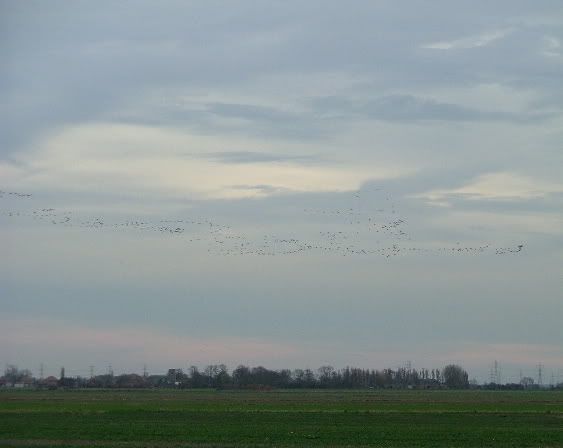 The Pinkies.
The Pinkies.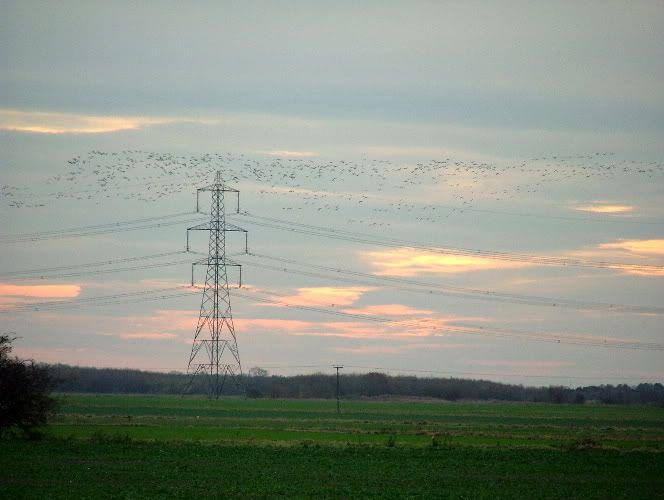
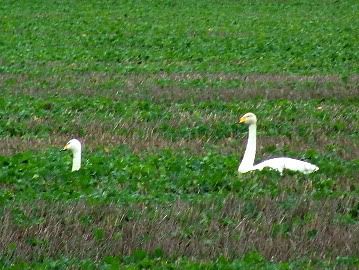 Locally rare a couple of Whoopers were in fields adjacent to the reserve.
Locally rare a couple of Whoopers were in fields adjacent to the reserve.